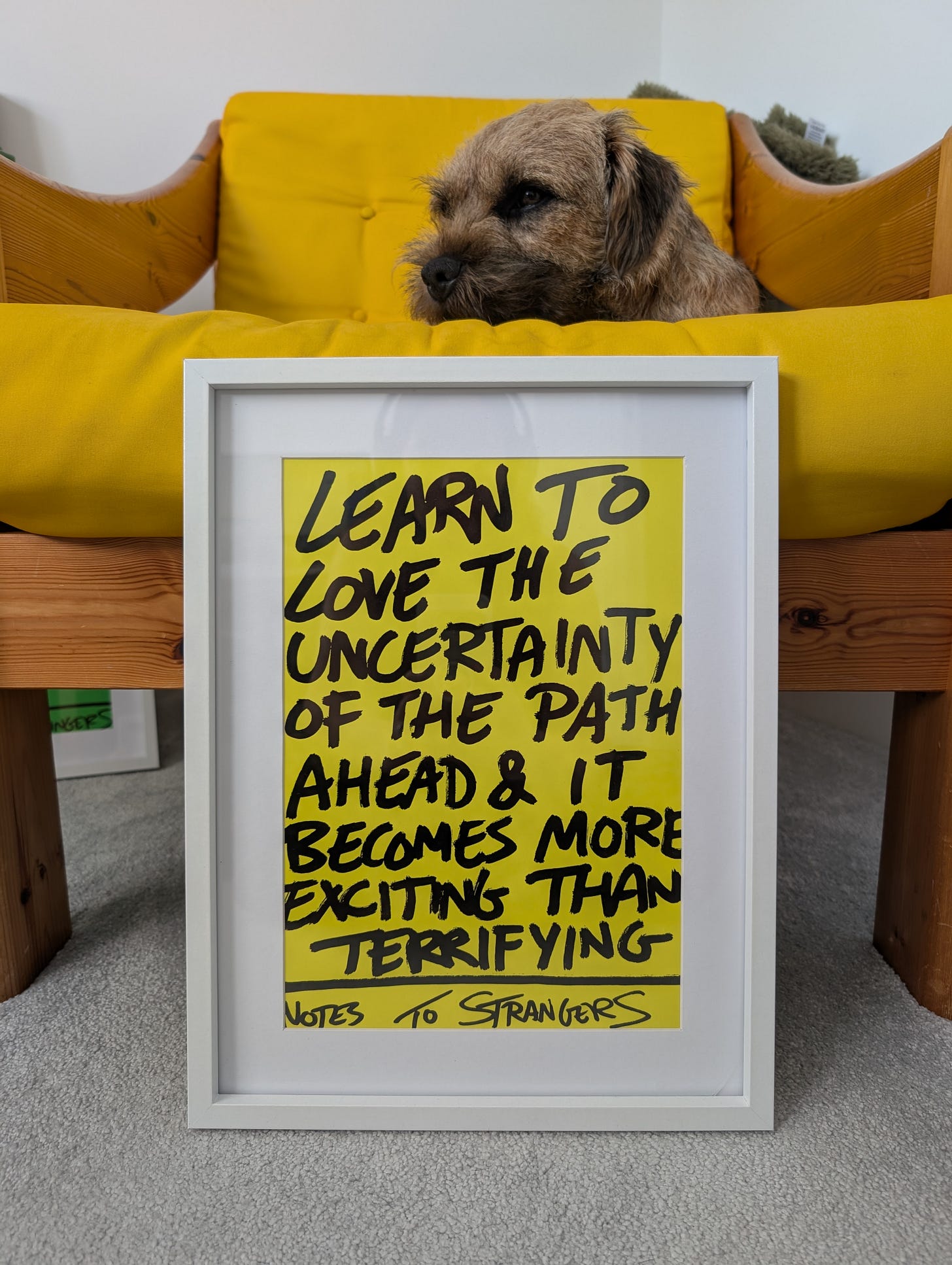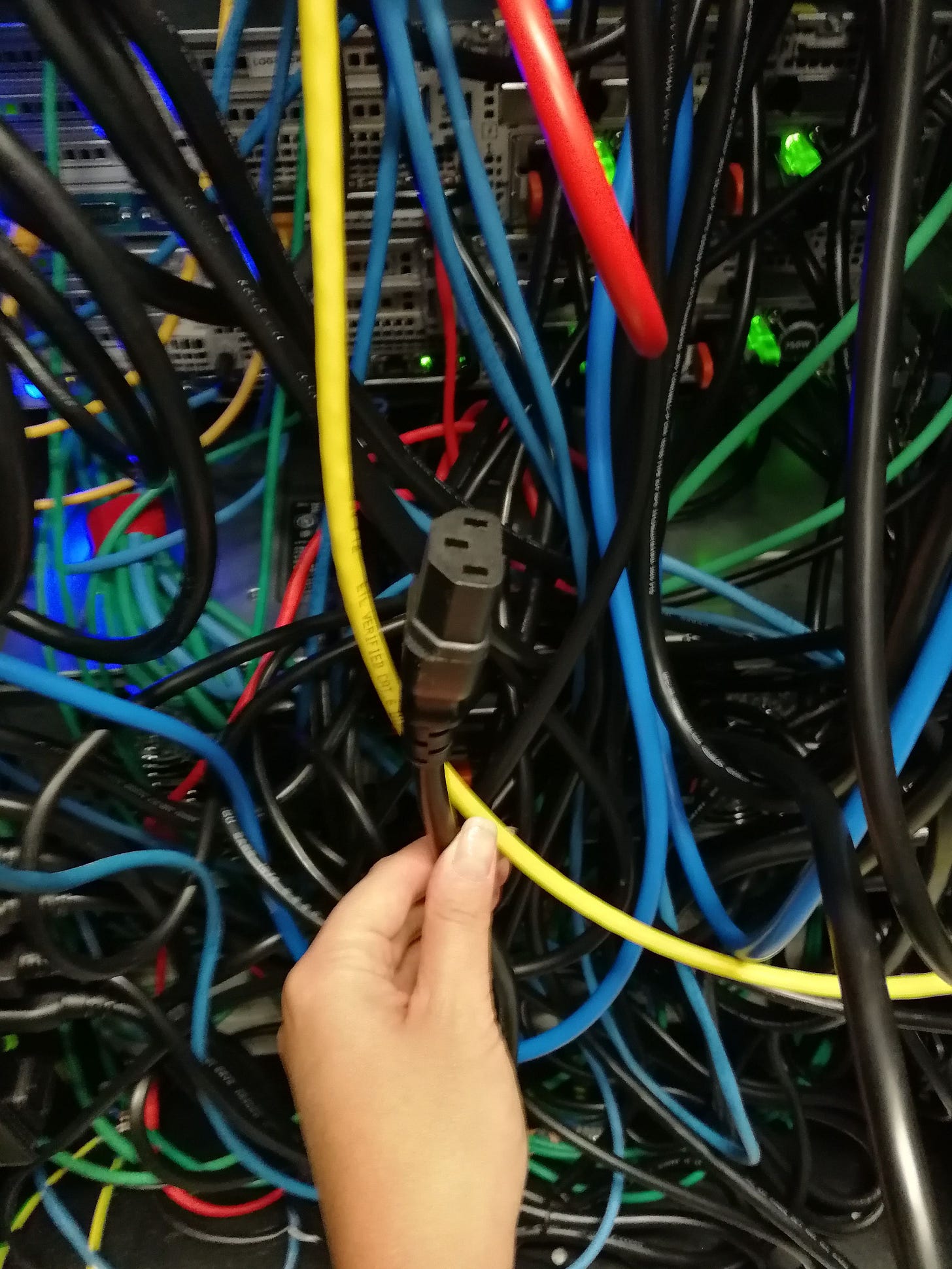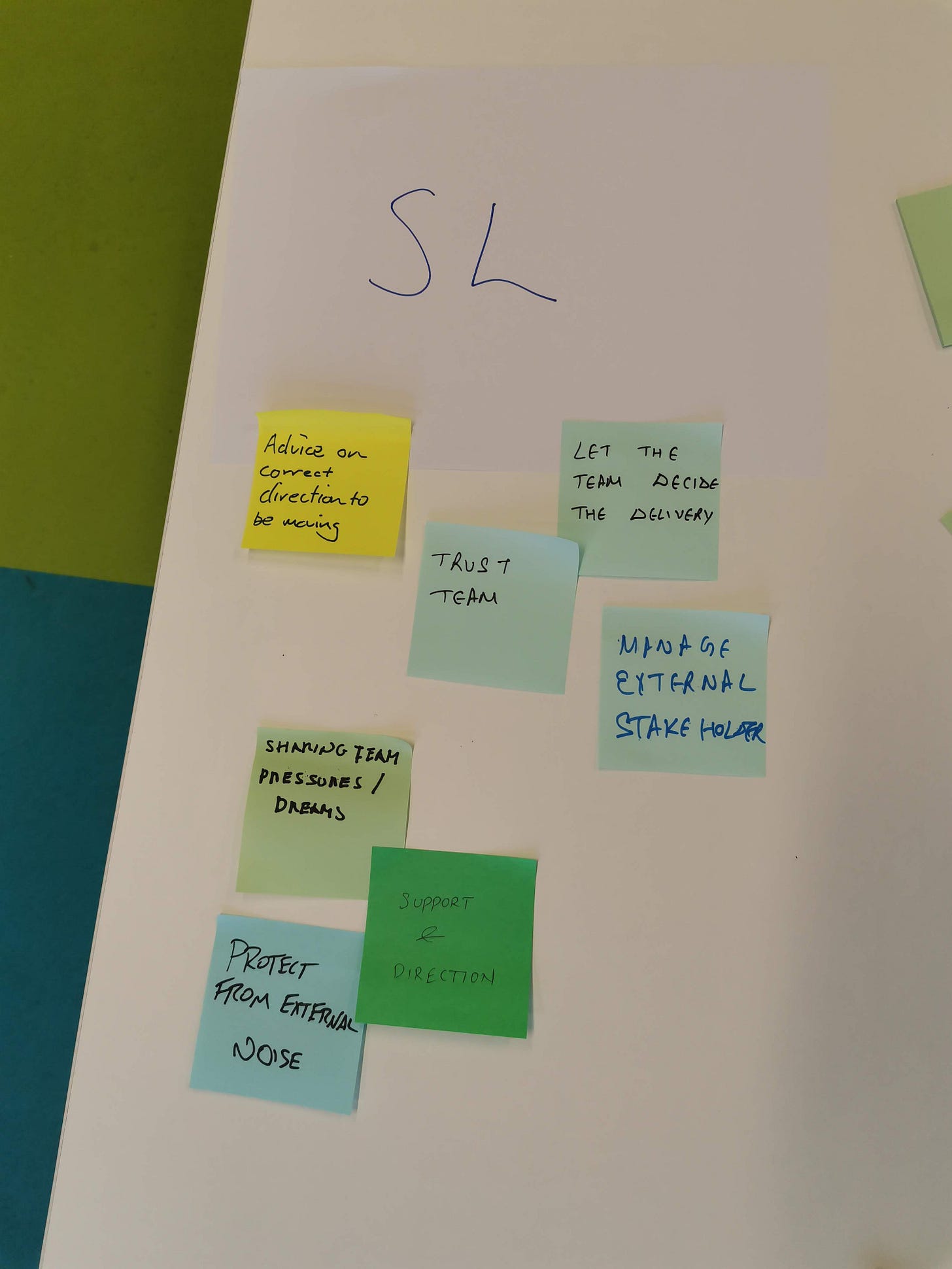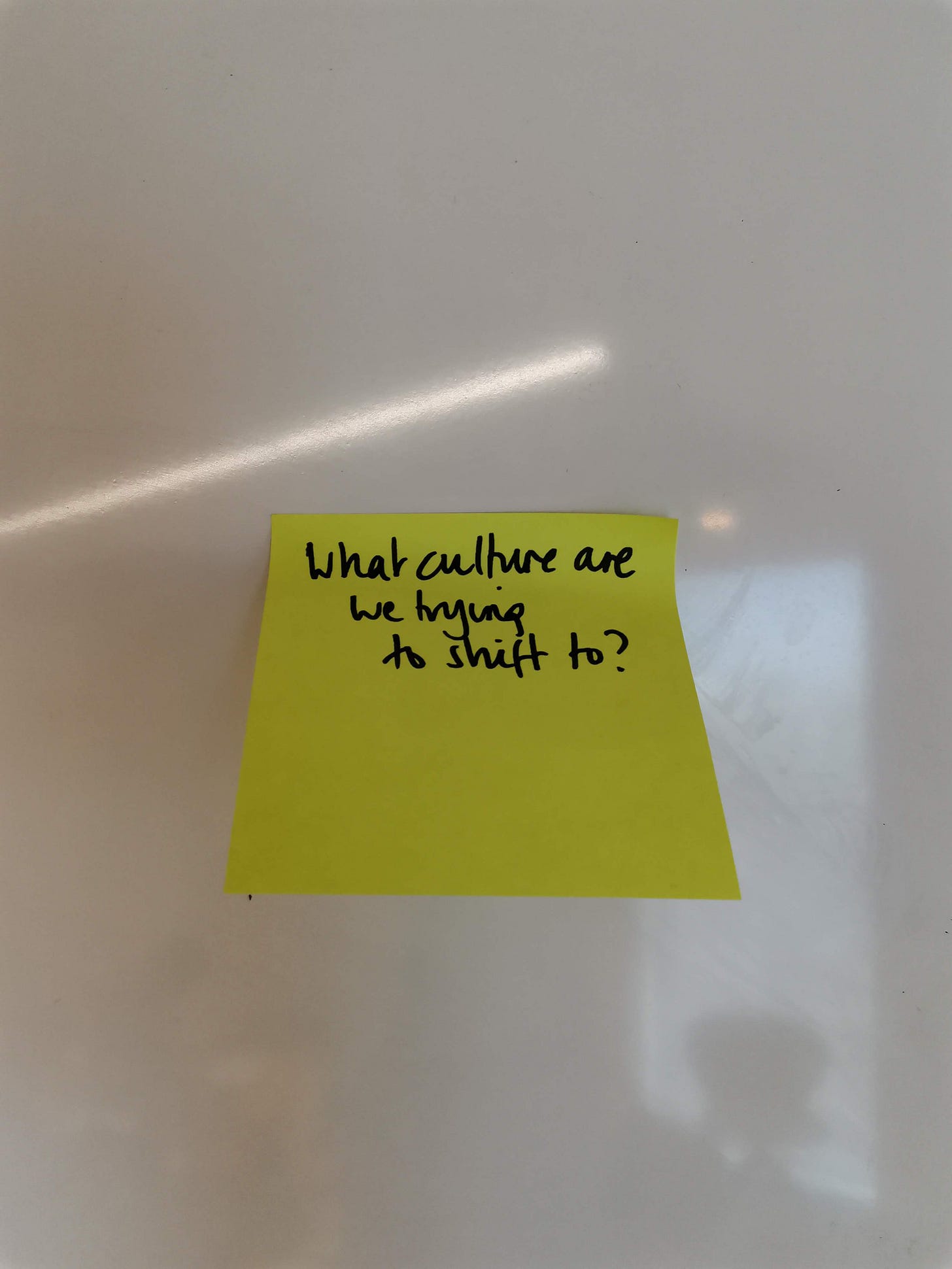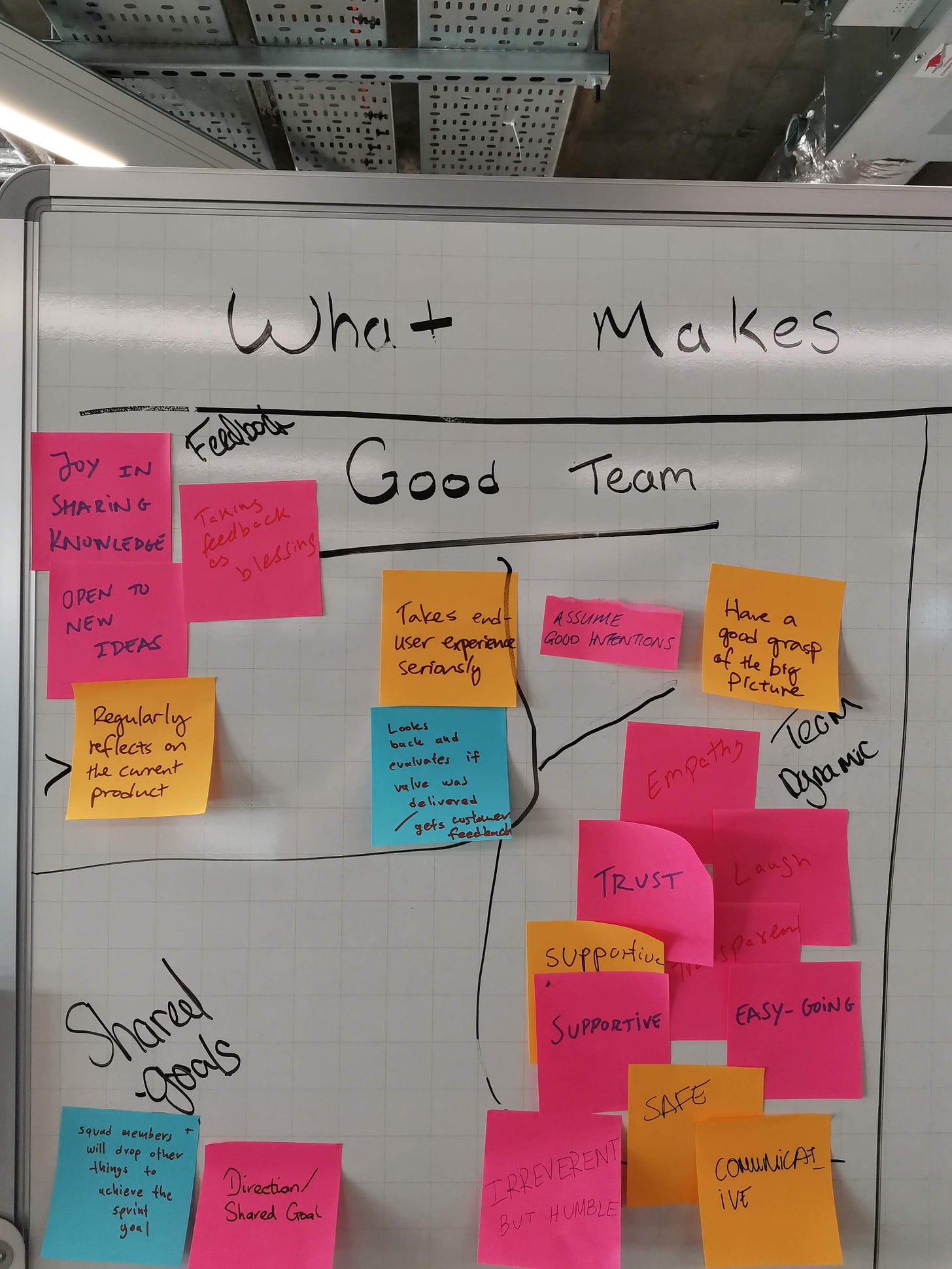✍️ Reflections from 6 months as an Engineering Manager
At the time of finally getting around to writing and publishing this, it's actually closer to nine months. So there’s that.
Before we get into it, some background.
It's been 17 years since my accidental career in tech began back in early 2008. I started out as Helpdesk Assistant at a bespoke time-recording software company tucked away on a grey industrial estate in Elsenham. It was my first experience of the complexities of workplace dynamics, including some difficult and uncomfortable situations.
I stayed in front line support roles for a few years, working across data backup and web hosting services. My “big break” came in 2013, when I was hired as a Linux Systems Administrator by a hiring manager who could see past my CV to my raw potential. I don’t remember much about the interview, except that it was a rainy day, and on my walk to the office I stepped on a wobbly paving slab and flooded my shoe with dirty water.
Wet shoe aside, I was given a chance and all the good things I’ve learned about network and systems administration, I learned in that Systems team. But after a particularly stressful office move project, I burned out and jumped ship to save myself.
Right in the thick of DevOps going mainstream, I found myself in what can only be described as industry pinball. I bounced between roles - some with managers who told me I wasn’t technical enough and suggested I change careers, others who promised training on different tech stacks during interviews, only to forget those promises once I was through the door and fail my probation.
By the time I joined my current company towards the end of 2019, my career had stabilised, but I was disillusioned about my future. I’d had precious few positive experiences with a long line of managers, all of them men.
Pivot!
During my first 12 months here, my manager changed twice. By the time I left Systems Engineering, I was on manager number four, and at the time of writing, I’m on manager number seven. I’ve been here just over five years, in three different roles.
It was during my time as an Agile Coach facilitating workshops for teams that I was asked multiple times by other Squad Leads whether I had considered becoming a manager. I repeatedly rejected even entertaining the possibility, but the circumstances of the coaching team changed, and ultimately it was a combination of both of my former disciplines that set me up for success to become an Engineering Manager in August 2024.
I now manage seven software engineers and am accountable for team health and delivery.
The first 90 days
I joined the squad with a very high level 30-60-90 plan in mind;
By day 30 - listen, observe, build relationships with the team
By day 60 - understand services and roadmap at a high level
By day 90 - contribute meaningfully to discussions, experiment with incremental ways of working improvements
This strikes me as a common-sense approach and one I would’ve taken in any team. However, I’d been given the heads-up that one of the key concerns for this particular squad was that any incoming manager shouldn’t make changes for change’s sake but should instead focus on steadying the ship.
Whilst I didn't necessarily know what to do going in to the role, I knew from my own experiences that there were some things I wanted to avoid.
I wanted to lead with trust, not slip into micromanagement. I wanted the team to feel psychologically safe and see me take meaningful action off the back of their feedback. And I promised myself I would never discourage anyone from pursuing a technical IC path, because I know first hand how damaging to someone's confidence it can be.
So what have I actually done?
In my first 9 months as a manager, I have:
Built relationships and trust with each team member, understanding their individual communication styles and what level of candor they’re comfortable with
Agreed/approved a change to the support rota that the team requested
Taken over facilitation of meetings like standup and planning, improving the focus and reducing total meeting time
Banished story pointing
Onboarded a graduate into the team
Challenged a backlog generation exercise masquerading as a “Big Hairy Audacious Goal”, potentially contributing to its demise 😬
Had one change of product owner
Started shifting the highest priority goals from individual incentives to shared team commitments, ongoing with mixed results
Limited the number of concurrent workstreams to improve focus and collaboration and reduce context switching
Course-corrected some promo box-ticking and got people thinking more about showing up and delivering consistently
Delivered news of a reduced performance rating from the previous cycle
Shielded my team from proposed service handovers
Received feedback that I lack technical credibility
Seen a measured increase in engagement survey scores for management-related questions
Struggled to engage the team in a proposed joint hackday with another squad
Been on the receiving end of a "decision doc"
Had to write a "decision doc"
Founded a new Community of Practice
Gained two new mentees
Started to implement a long thread swear jar in Slack
Experienced a significant increase in insomnia
Booked and attended my first dentist appointment in ~20 years
Consistently felt like I’m on the verge of getting a cold
Memos to self
It's taken me nine months to start to feel like I'm treading water rather than totally drowning and so far, my main learnings are these:
🔎 Management is lonely. People warned me about this before I took the leap, but now I really understand what they meant. When you switch from IC to EM, you’re not part of a team in the same way anymore, and that’s a shift you have to make peace with. Having forums to chat with other EMs has been invaluable
🌱 Keep your vision for the team’s future state in mind. I know where I want us to get to, but it’s going to take time. Sometimes all I can do is plant seeds and wait. Other times, I have to make a decision that doesn’t please stakeholders in the moment but clears the way for longer-term goals
✨ Keep track of your glimmers. There are days when it feels like nothing is changing, but I’m having more impact and making more progress than I think. Keeping a log of wins, however trivial they may seem, has given me a boost in tough moments
🏆 Unlearning old performance mindsets is hard. Shifting from individual incentives to shared accountability takes time and needs to be championed, recognised, and rewarded in calibrations. People will only believe this change is a positive for them if they see it reflected in the way their work is recognised.
🩹 A different kind of Glue Work. A lot of what you do as an EM is invisible, whether it's shielding the team from distractions, or just quietly keeping things ticking over. They might never see it, but it still needs doing. I’ve found myself on the wrong side of “customer collaboration over contract negotiation” more than once doing this kind of work and have felt some kind of way about it…
…but that's a post for another time.


